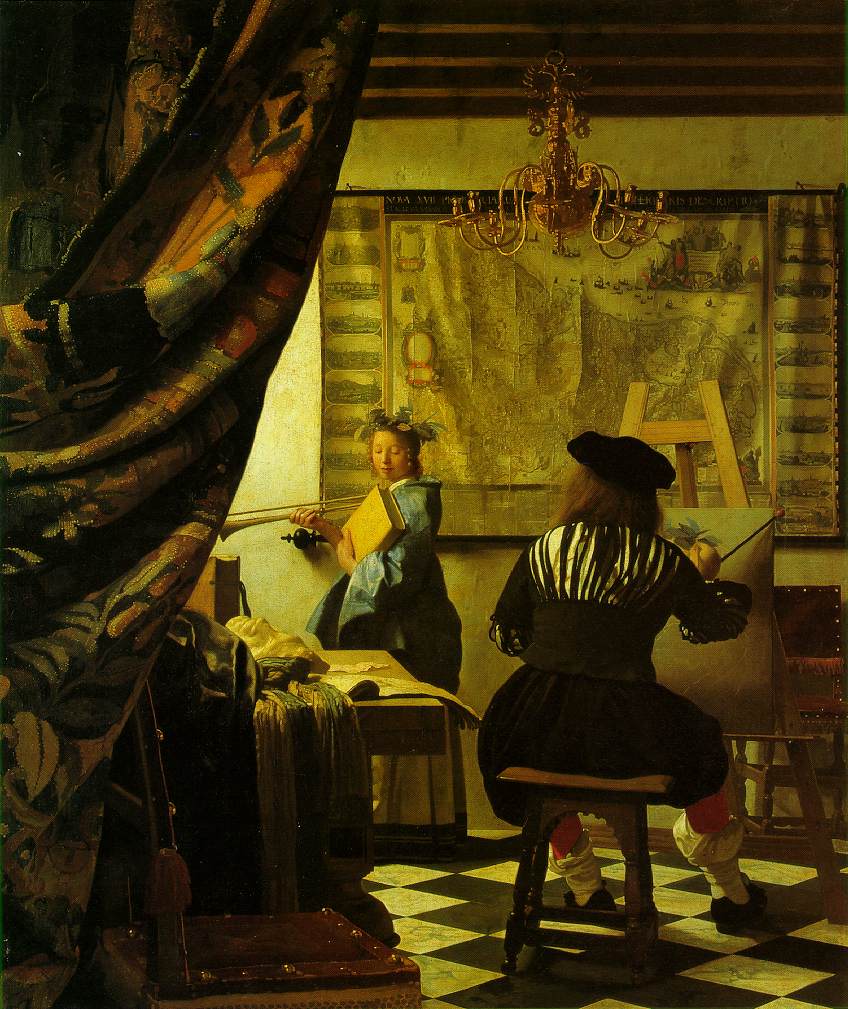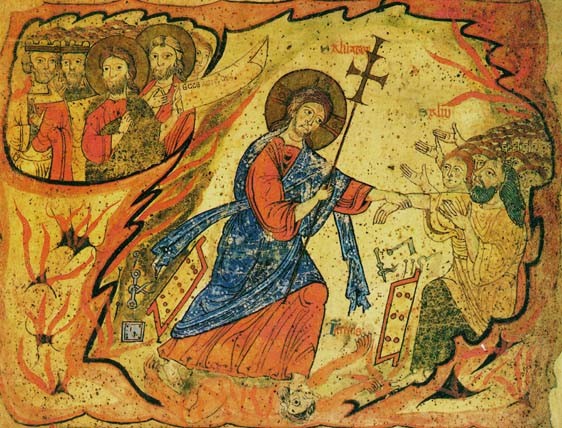 The Deposition - Caravaggio
The Deposition - Caravaggio
1604; Pinacoteca Vaticana
Having heard the Passion Narrative at Vigil Mass, I'm struck by the way that the "old, old story" is what C. S. Lewis called "the myth become fact" and forever new. More recently, René Girard has seen that myths in fact veil actual murders, act as justification for them, and work alongside two other elements of human culture, ritual and prohibitions.
Now (in the Church's wisdom) as we look upon the end note of a sad tale replayed "since the foundation of the world," a prolepsis for what will take place this Holy Week, we have the opportunity to realize
our culpability,
our collusion,
our aptness for falling into victimizing. We can pray along with the publican in Jesus' parable
[Mtt 18:10ff], "Lord, have mercy on me, a sinner."
BLATHMAC'S LAMENT
Your People seized your son, Mary, they flogged him.
There struck him the green reed and fists across ruddy cheeks.
It was a hideous deed that was done to him;
that his very mother-kin should crucify the man who had come to save them.
A crown of thorns was placed about his beautiful head;
nails were driven through his feet,
others through his hands.
When they thought thus that Jesus could be approached,
Longinus then came to slay him with the spear.
The King of the seven holy heavens,
when his heart was pierced,
wine was spilled upon the pathways,
the blood of Christ flowing through his gleaming sides.
The flowing blood from the body of the dear Lord baptized the head of Adam,
for the shaft of the cross of Christ had aimed at his mouth.
By the same blood (it was a fair occasion!) quickly did he cure the fully blind man,
who openly with his two hands, was plying the lance.
+
Blathmac, who was a Culdee (part of the Celtic reform movement in the 8th century), composed this lament, asking the Blessed Virgin to come to him and keen for the dead Son of God.
 William Holman Hunt (1853–4)
William Holman Hunt (1853–4)

















